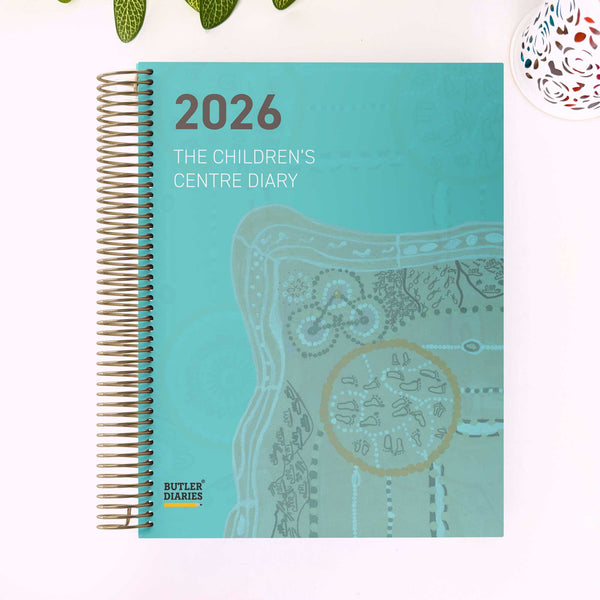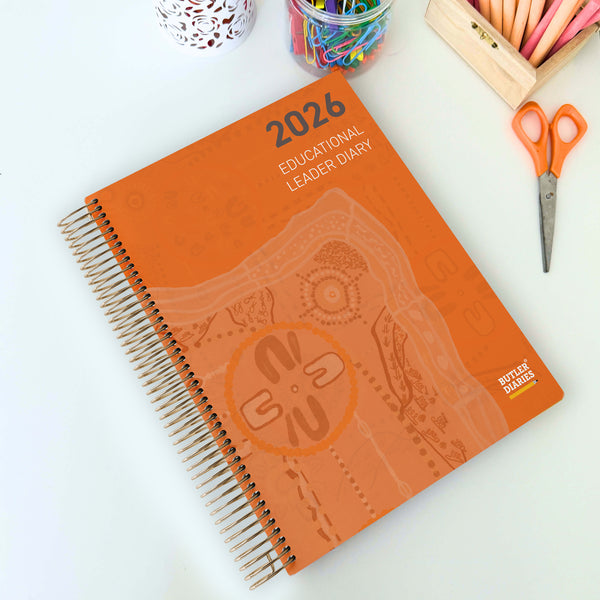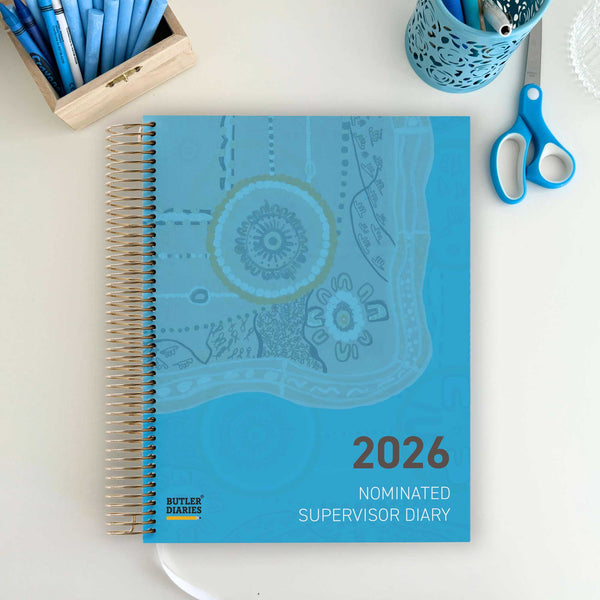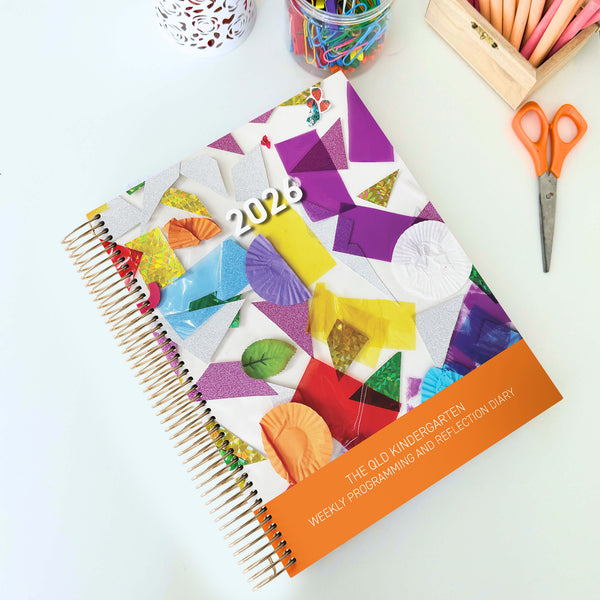Are you looking for a new job in childcare? Here are some tips on finding the right childcare job for you, avoiding red flag centres and directors, and nailing that interview once you find the right service for you!
Everything you Need to Know About a Childcare Job
A childcare job is more than just a means of earning a living; it is an opportunity to make a lasting impact on the lives of children and families. Whether you are a seasoned professional or considering a career change, the field of childcare offers a range of rewarding opportunities. Here we unpack everything you need to know about a job in childcare.
The Importance of Childcare
Childcare plays a crucial role in the development of children, providing a nurturing and educational environment during their early years. Research shows that high-quality childcare can positively influence children's cognitive, social, and emotional development, setting a strong foundation for their future success. By working in childcare, you become an integral part of a child's growth journey, contributing to their well-being and shaping their lives.
Types of Childcare Jobs
Childcare jobs encompass a wide range of positions, each with its unique responsibilities and requirements. Here are some of the most common roles in the field:
a) Childcare Provider / Nanny: As a childcare provider or nanny, you work directly with families to provide care for children in their homes. This role involves creating a safe environment, engaging in educational activities, and meeting the daily needs of the child, such as feeding and nap schedules.
b) Preschool / Kindergarten Teacher: Preschool/ Kindergarten teachers play a vital role in early childhood education, facilitating learning and development in children aged three to five. They design and implement age-appropriate curriculum, foster social skills, and promote a love for learning through engaging activities.
c) Daycare Educator: Daycare educators provide care and supervision for children in daycare centres or childcare facilities. They ensure a safe environment, plan and implement educational activities, and facilitate social interactions among children.
d) OSHC / Vacation Care Educator: An OSHC / Vacation Care Educator is responsible for designing programs for school aged children before or after school and during school holiday periods. These educators often take children out on various educational excursions during vacation periods.
e) Early Intervention Specialist: Early intervention specialists work with infants and toddlers who have developmental delays or disabilities. They create individualised plans, provide therapy and support, and collaborate with families and other professionals to enhance the child's development.
Learn about the specific roles and their responsibilities in early education and care here.

Essential Skills and Qualities
Working in childcare demands specific skills and qualities to excel in these roles. Some of the essential attributes include:
a) Patience and Compassion: Working with children requires patience and understanding, especially during challenging situations. Compassion allows you to build trusting relationships and provide emotional support.
b) Effective Communication: Clear and open communication is crucial when interacting with both children and parents. The ability to listen attentively and express ideas effectively ensures smooth collaboration and a positive environment.
c) Creativity and Flexibility: Childcare professionals need to be creative in developing engaging activities and adapting to the ever-changing needs of children. Flexibility allows you to handle unexpected situations and adjust routines accordingly.
d) Organisational and Time Management Skills: Effective organisation and time management skills help you juggle various responsibilities and ensure a structured and productive environment for children.
We have a range of Early Childhood resources to support you in demonstrating these skills by simplifying documentation and saving you time!

Education and Training
Depending on the specific role, education and training requirements in childcare jobs may vary. While some positions may require a high school diploma and relevant experience, others may necessitate formal education in early childhood development, such as an associate or bachelor's degree. Additionally, certifications in CPR, first aid, and specialised training in areas like behaviour management or child psychology can enhance your qualifications and job prospects.
Career Growth and Opportunities
Childcare jobs offer promising opportunities for career growth and professional development. As you gain experience and expand your skills, you can take on leadership roles, such as becoming a director or supervisor in a childcare center. Moreover, pursuing further education or certifications in specialised areas like special education or child development can open doors to more advanced positions.
Learn about the specific roles and their responsibilities in early education and care here.

Finding the Perfect Childcare Job
Embarking on a career in childcare is an exciting and fulfilling endeavour. However, with the wide range of opportunities available, finding the right childcare job that aligns with your skills, values, and aspirations can be a crucial step towards professional satisfaction. Here are tips and strategies to help you navigate the process of finding the perfect childcare job that suits you best.
-
Identify Your Preferences and Goals: Before you begin your search, take some time to reflect on your preferences and goals. Consider factors such as age group preferences, work environment (home-based or center-based), desired schedule (full-time or part-time), and specific areas of interest within the field of childcare (early intervention, special needs, etc.). Clarifying your preferences and goals will help you narrow down your options and focus your job search effectively.
-
Research Different Childcare Settings: Childcare jobs are available in a variety of settings, including private households, daycare centers, preschools, and educational institutions. Research different settings to understand their unique dynamics, regulations, and requirements. Each setting has its own advantages and considerations, so it's essential to find the one that aligns with your values and career objectives.
-
Network and Seek Recommendations: Networking can be a powerful tool in finding the right childcare job. Reach out to professionals in the field, attend industry events, and join online communities and forums dedicated to childcare. By connecting with experienced individuals, you can gain valuable insights, learn about job openings, and even receive recommendations for potential employers.
-
Utilise Online Job Search Platforms: Online job search platforms have become an indispensable resource for finding childcare jobs. Explore reputable websites and job boards that specialise in childcare and early childhood education. Customise your search criteria based on your preferences and desired location. Regularly check these platforms for new job postings and set up alerts to stay informed about relevant opportunities.
-
Prepare an Impressive Resume and Cover Letter: Crafting a compelling resume and cover letter is crucial when applying for childcare jobs. Highlight your relevant experience, education, certifications, and any specialised training you have undergone. Emphasise your passion for working with children, your ability to create a nurturing environment, and your commitment to their well-being. Tailor your application materials to showcase how your skills and qualifications meet the specific requirements of the job.
-
Prepare for Interviews: Once you secure an interview, make sure to thoroughly prepare. Research the organization or family you are interviewing with, familiarise yourself with their values and philosophies, and come prepared with thoughtful questions. Be ready to share specific examples of your experiences, problem-solving abilities, and strategies for creating a positive and engaging environment for children. We have included interview tips further down in this article!
-
Conduct Due Diligence: Before accepting a childcare job offer, conduct due diligence to ensure it is the right fit for you. Consider factors such as work-life balance, compensation, benefits, professional development opportunities, and the organisation's reputation (we have also added red flags to watch out for below!) If possible, visit the childcare setting, observe the environment, and interact with staff members to get a sense of the culture and working conditions.
-
Trust Your Instincts: Lastly, trust your instincts. If something doesn't feel right during the interview process or if you have concerns about a particular job offer, listen to your gut. It's important to find a childcare job where you feel valued, supported, and aligned with the organisation's mission.
Finding the right childcare job requires careful consideration, research, and self-reflection. By identifying your preferences, networking, utilising online job search platforms, and preparing thoroughly for interviews, you can increase your chances of finding a childcare job that is both fulfilling and aligned with your career goals. Remember to trust your instincts throughout the process, as they can guide you towards making the best decision for your professional journey.

Nailing your Childcare Job Interview
Securing a childcare job requires more than just a well-crafted resume and cover letter. The job interview plays a crucial role in showcasing your skills, experience, and passion for working with children. To increase your chances of success and stand out from the competition, it's essential to be well-prepared and confident during the interview process. Here are tips and strategies to help you nail your job interview in the childcare field.
-
Research the Organisation: Before your interview, thoroughly research the organisation or childcare center you are applying to. Familiarise yourself with their mission, values, educational approach, and any specific programs they offer. Understanding the organisation's goals and philosophies will enable you to align your answers with their vision and demonstrate your genuine interest in becoming part of their team.
-
Highlight Relevant Experience: During the interview, emphasise your relevant experience in working with children. Be prepared to discuss specific examples that demonstrate your ability to create a nurturing environment, manage behavioural challenges, implement educational activities, and support children's developmental needs. Use concrete examples to showcase your skills and provide evidence of your impact in previous childcare roles.
-
Showcase Your Passion: Childcare professionals must have a genuine passion for working with children. Communicate your enthusiasm for the field and your dedication to making a positive impact on children's lives. Share personal stories or experiences that reflect your passion and commitment. Employers value candidates who genuinely care about the well-being and development of children.
-
Demonstrate Your Communication Skills: Effective communication is crucial in the childcare field, both with children and parents. During the interview, demonstrate your ability to communicate clearly, listen attentively, and adapt your communication style to different audiences. Showcase your skills in building rapport, resolving conflicts, and maintaining open lines of communication with parents and colleagues.
-
Showcase Your Problem-Solving Abilities: Childcare jobs often require quick thinking and problem-solving skills. Be prepared to discuss how you handle challenging situations or unexpected issues that may arise in a childcare setting. Employers value candidates who can think critically, remain calm under pressure, and find creative solutions to problems.
-
Show Empathy and Patience: Childcare professionals must possess empathy and patience when working with children. During the interview, emphasise your ability to understand and respond to children's emotions, demonstrate patience in challenging situations, and maintain a calm and supportive demeanor. Highlighting these qualities will convey your suitability for the role and your commitment to creating a nurturing environment.
-
Prepare Questions: At the end of the interview, the interviewer will likely ask if you have any questions. Be prepared with thoughtful questions that demonstrate your interest and engagement. Ask about the organisation's approach to child development, opportunities for professional growth, or the typical daily routine in the role you're applying for. Thoughtful questions show your enthusiasm and willingness to learn more about the position and the organisation.
-
Follow-Up with a Thank-You Note: After the interview, send a personalised thank-you note or email to the interviewer. Express your appreciation for the opportunity to interview and reiterate your interest in the position. This simple gesture demonstrates professionalism and leaves a positive impression on the interviewer.
Nailing your job interview in the childcare field is crucial for securing the perfect position. By researching the organisation, highlighting relevant experience, showcasing your passion and communication skills, demonstrating problem-solving abilities, and showing empathy and patience, you can stand out as an exceptional candidate. Remember to prepare thoughtful questions and follow up with a thank-you note to leave a lasting impression. With adequate preparation and confidence, you can increase your chances of securing your desired childcare job and embark on a rewarding career that positively impacts the lives of children.

Red Flags This is not the Childcare Job for you
When searching for a childcare job, it's essential to thoroughly evaluate potential employers to ensure a safe, supportive, and fulfilling work environment. Recognising red flags during the job search process can help you avoid potential challenges and make an informed decision. Here are the crucial red flags to watch out for when finding a childcare job, enabling you to prioritise the well-being of both the children you care for and your own professional experience.
-
Inadequate Safety Measures: The safety and well-being of children should be the utmost priority in any childcare setting. Pay attention to the safety measures implemented by potential employers. Red flags may include insufficient child-to-staff ratios, lack of appropriate safety protocols, outdated or poorly maintained equipment, or inadequate supervision. Ensure that the organisation complies with relevant safety regulations and demonstrates a commitment to providing a secure environment for children.
-
Lack of Professional Development Opportunities: To thrive in the childcare field, continuous learning and professional growth are essential. A red flag to watch out for is an employer who does not prioritise professional development opportunities. If there is no support for attending workshops, conferences, or further education, it may indicate a lack of investment in the growth and advancement of their employees. Look for employers who encourage ongoing training and provide opportunities to enhance your skills and knowledge.
-
Limited Communication and Collaboration: Effective communication and collaboration are crucial in a childcare setting. During the interview process, pay attention to how potential employers communicate and interact with you. Red flags may include lack of transparency, poor responsiveness to inquiries, and limited opportunities for open dialogue. A healthy work environment encourages communication, values input from staff members, and fosters collaborative relationships among team members.
-
High Staff Turnover: Consistent staff turnover can indicate underlying issues within an organisation. If you notice a pattern of frequent job postings or high staff turnover, it could be a red flag. It suggests potential challenges with management, work environment, or job satisfaction. Inquire about the reasons for turnover during the interview process, and consider speaking with current or former employees to gain insights into their experiences.
-
Negative Reputation or Reviews: Before accepting a childcare job offer, conduct thorough research on the employer. Check online reviews, testimonials, and ratings on reputable platforms. While negative feedback should be taken with a grain of salt, patterns of consistent negative reviews or concerning comments may indicate a problematic work environment. Consider reaching out to current or former employees for their perspectives on the organisation.
-
Lack of Clear Policies and Procedures: A well-organised and professional childcare organisation should have clear policies and procedures in place. Red flags may include a lack of written guidelines for important aspects such as behavior management, health and safety protocols, discipline strategies, and emergency procedures. Without clear policies, it may be challenging to ensure consistency and provide the best care for children. Ask potential employers about their policies during the interview process to assess their commitment to organisation and professionalism.
-
Insufficient Support or Resources: A supportive work environment is crucial for professional growth and job satisfaction. Look out for red flags such as limited resources, inadequate supervision, or lack of support from management. Without proper support and resources, it can be challenging to provide high-quality care and meet the needs of children. Inquire about the available resources, support systems, and the organisation's approach to staff well-being and job satisfaction.
When searching for a childcare job, being aware of red flags can help you make an informed decision and choose an employer that aligns with your values and priorities. Pay attention to inadequate safety measures, limited professional development opportunities, poor communication and collaboration, high staff turnover, negative reputation or reviews, lack of clear policies and procedures, and insufficient support or resources. By being mindful of these red flags, you can prioritize the well-being of the children you care for and ensure a positive and fulfilling work experience for yourself.
So, is a Childcare Job Right for you?
Childcare jobs are not only a means of employment but a chance to make a meaningful impact on the lives of children and families. The importance of high-quality childcare cannot be overstated, as it shapes the future of young minds and supports working parents in their pursuit of career and personal goals.
By choosing a career in childcare, you embark on a journey filled with joy, challenges, and endless opportunities for personal and professional growth. The satisfaction of witnessing a child's growth and development, knowing that you played a vital role in their journey, is immeasurable. As you build nurturing relationships with children and their families, you become an integral part of their support system, creating a positive and enriching environment.
In today's fast-paced world, where many parents juggle multiple responsibilities, the demand for childcare professionals continues to grow. The need for dedicated individuals who are passionate about providing a safe and nurturing environment for children has never been greater. Whether you choose to work as a childcare provider, preschool teacher, daycare worker, or early intervention specialist, you contribute to the well-being and future success of the children under your care.
To excel in childcare jobs, it is important to continuously enhance your skills and knowledge. Seek professional development opportunities, attend workshops, and stay updated on the latest research and best practices in early childhood education. Networking with other professionals in the field can also provide valuable insights and support.
Moreover, remember that the impact of your work extends beyond the confines of a job description. By advocating for high-quality childcare, participating in community initiatives, and promoting awareness of early childhood development, you can contribute to the larger goal of creating a society that values and invests in its youngest members.
Childcare jobs offer a unique and rewarding career path for those passionate about making a difference in the lives of children. Through nurturing, educating, and supporting young minds, you have the power to shape their future and contribute to the well-being of families. Embrace the challenges, celebrate the milestones, and embark on a fulfilling journey in the world of childcare jobs. Your dedication and commitment will have a lasting impact on the children and families you serve, making it a truly noble and fulfilling profession.
Need resources for your new Childcare Job?
Butler Diaries has a range of Early Childhood resources designed to simplify documentation, address compliance requirements, and save you time.































